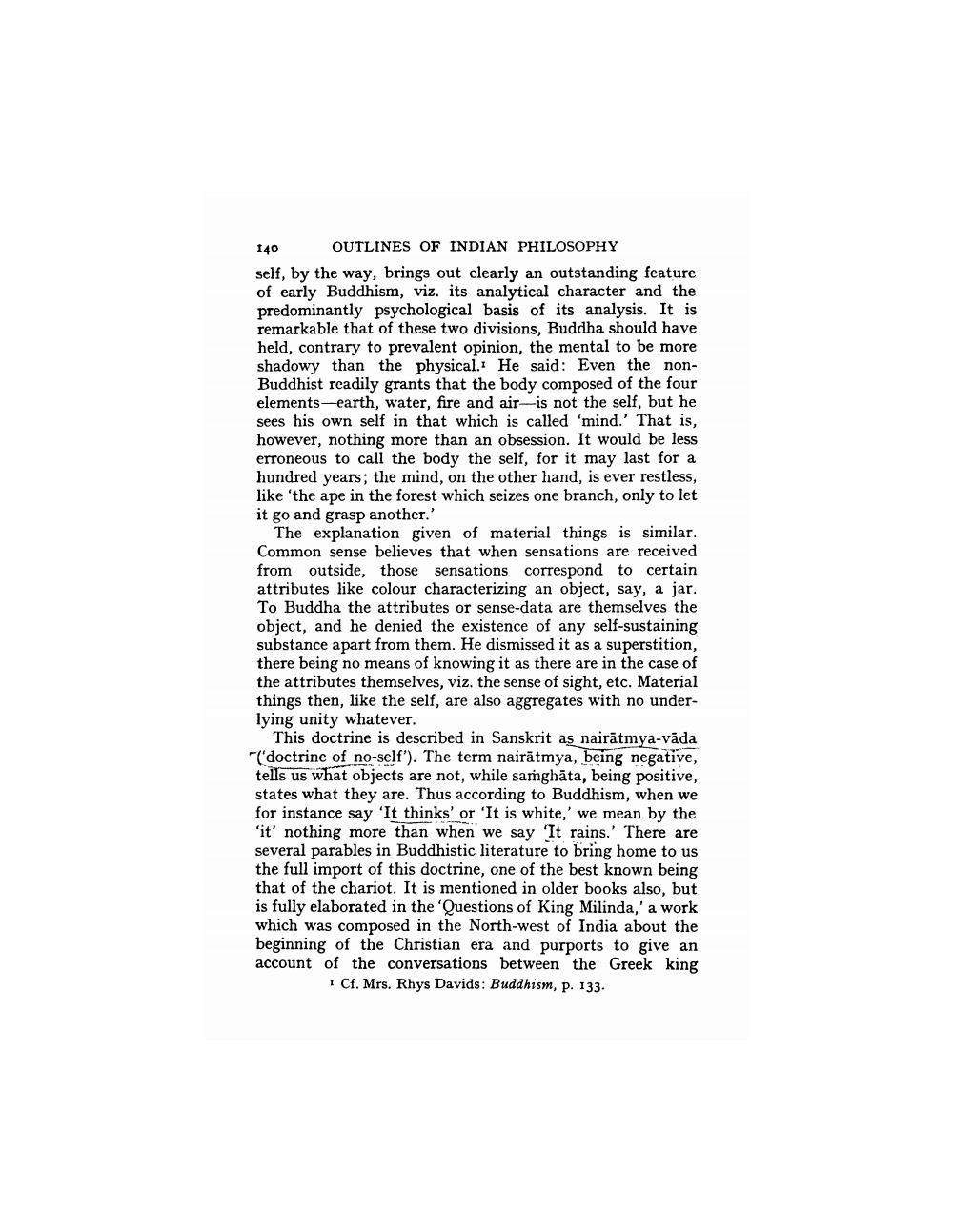________________
140 OUTLINES OF INDIAN PHILOSOPHY self, by the way, brings out clearly an outstanding feature of early Buddhism, viz. its analytical character and the predominantly psychological basis of its analysis. It is remarkable that of these two divisions, Buddha should have held, contrary to prevalent opinion, the mental to be more shadowy than the physical.: He said: Even the nonBuddhist readily grants that the body composed of the four elements-earth, water, fire and air-is not the self, but he sees his own self in that which is called 'mind.' That is, however, nothing more than an obsession. It would be less erroneous to call the body the self, for it may last for a hundred years; the mind, on the other hand, is ever restless, like 'the ape in the forest which seizes one branch, only to let it go and grasp another.'
The explanation given of material things is similar. Common sense believes that when sensations are received from outside, those sensations correspond to certain attributes like colour characterizing an object, say, a jar. To Buddha the attributes or sense-data are themselves the object, and he denied the existence of any self-sustaining substance apart from them. He dismissed it as a superstition, there being no means of knowing it as there are in the case of the attributes themselves, viz. the sense of sight, etc. Material things then, like the self, are also aggregates with no underlying unity whatever.
This doctrine is described in Sanskrit as nairātmya-vāda ('doctrine of no-self'). The term nairātmya, being negative, tells us what objects are not, while samghāta, being positive, states what they are. Thus according to Buddhism, when we for instance say 'It thinks' or 'It is white,' we mean by the 'it' nothing more than when we say 'It rains.' There are several parables in Buddhistic literature to bring home to us the full import of this doctrine, one of the best known being that of the chariot. It is mentioned in older books also, but is fully elaborated in the 'Questions of King Milinda,' a work which was composed in the North-west of India about the beginning of the Christian era and purports to give an account of the conversations between the Greek king
Cf. Mrs. Rhys Davids: Buddhism, p. 133.




